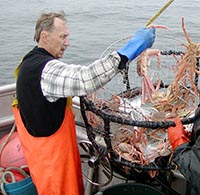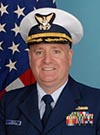Volunteer profile

Steve Lewis hails from a large family of farmers and ranchers who settled in Colorado and Nebraska in the late 1800s. When he was little, his father was in the U.S. Navy and often at sea, so Lewis spent a lot of time at his Uncle Chester’s house.
“It was a typical high-plains two story farmhouse,” Lewis recalls. Uncle Chester loved hunting and fishing, and Lewis has vivid memories of his uncle’s trophies from a trip to Alaska.
Along the stairwell, a Kodiak brown bear pelt reached from bottom of the first floor almost to the ceiling of the second floor. Little Lewis had to run past that bear to get to his bedroom, where a moose head hung.
“I KNEW that the other half of that moose was on the other side of that wall, and he was going to come through and get me.”
“So that was my introduction to Alaska.”
North to Alaska
Fortunately for the Council, that imaginative kid never lost his fascination with the state.

